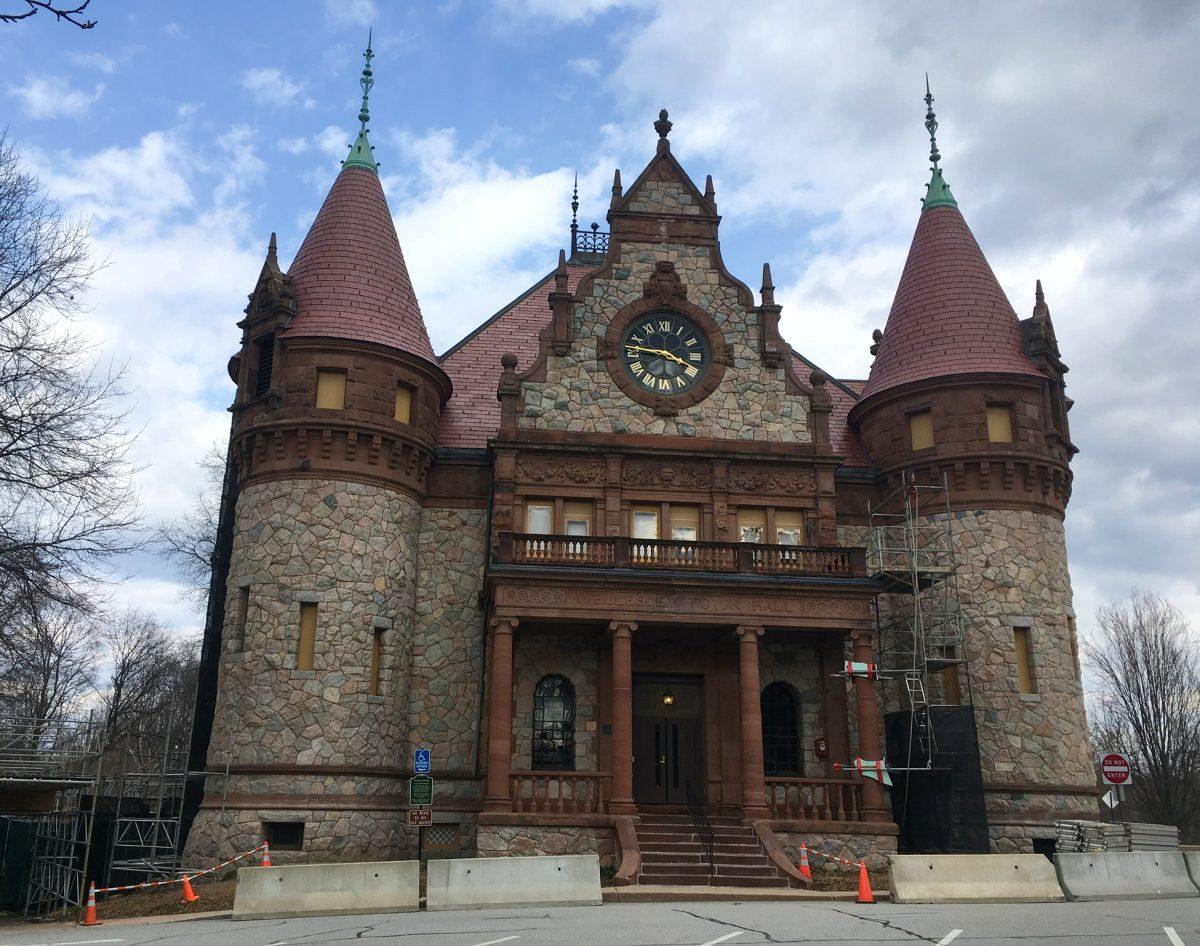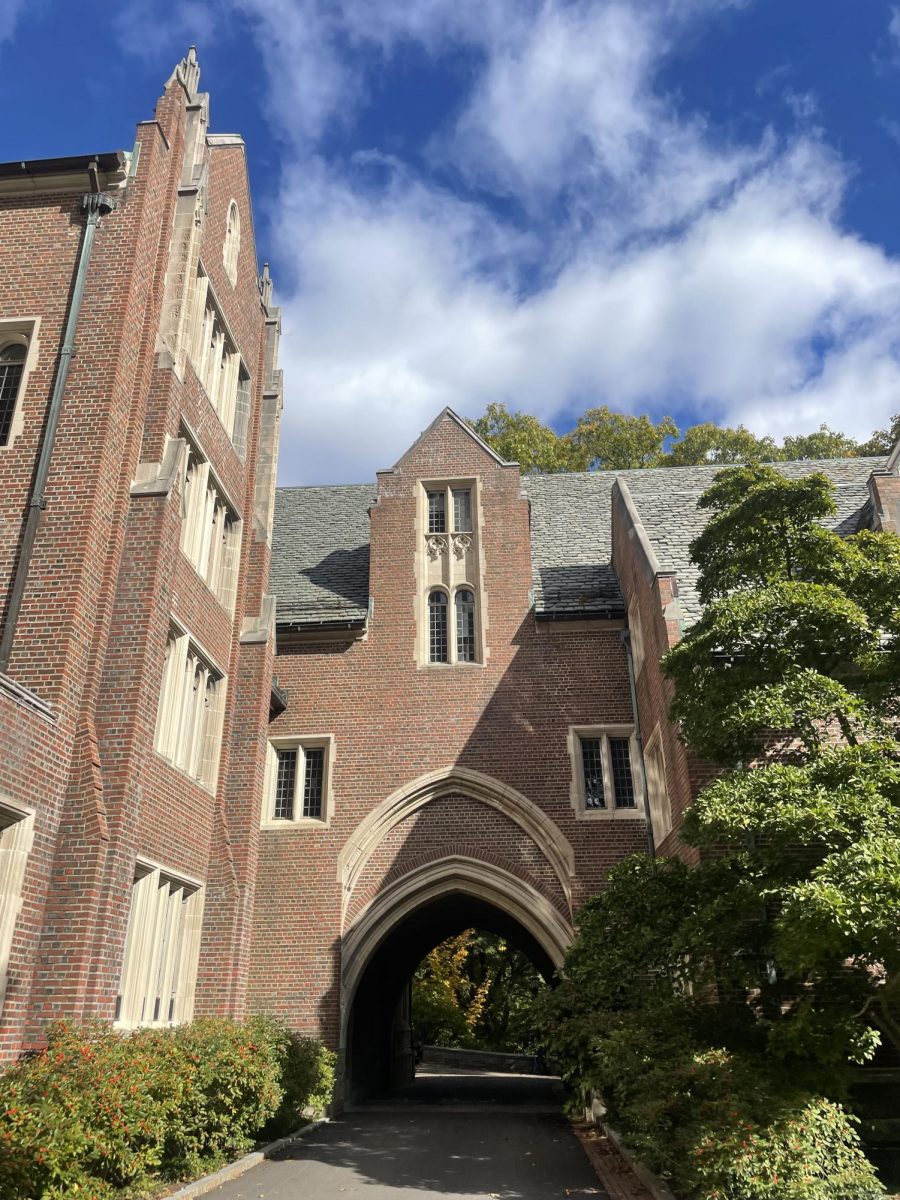In mid-February, a large group of Wellesley community members –– including several Wellesley College students –– convened outside of Wellesley Town Hall to petition the advisory board of Wellesley Town Meeting, the largest collective legislative body in the town of Wellesley, to change Columbus Day –– the holiday on the second Monday of October –– to Indigenous Peoples’ Day, as is currently celebrated in 3 states and dozens of localities.
This group delivered its petition, which contained over 400 community members’ signatures, to the advisory committee. The committee seemed receptive to the coalition’s requests, and agreed to consider listing the option of officially changing the holiday’s status on the 2019 Town Meeting Warrant (the ballot on which all Town Meeting members vote). However, according to the advisory committee’s official minutes, only four Town Meeting members voted to include the measure on the ballot, while seven voted against, and one abstained.
“Informing Advisory’s discussions was its understanding, derived from consultation with Town Counsel, that Town Meeting could lawfully adopt the five specific enumerated items sought by the petitioners in the second part of the Motion,” the minutes read. They showed how the members of the advisory committee, despite the testimony of several Native American citizens of Wellesley as well as several non-Indigenous middle school students who believed it would be just to complete this change, did not find the symbolic recognition of Indigenous peoples to be a compelling issue for the town of Wellesley.
“One member felt that the petition erred in portraying just indigenous peoples as having suffered, as many other ethnic groups had also suffered in the Americas. The member felt there should be a forum to discuss all the harm done to all ethnic groups,” the petition read. Other members seemed confused as to why this day would be necessary at all, or felt that the language used in the article was too inflammatory.
This, however, does not mean that the movement to create Indigenous Peoples’ Day in Wellesley will not move forward. Mahtowin Munro, who along with community members Joan Aandeg and Michelle Chalmers has been one of the main drivers behind the petition, said that the work towards Indigenous Peoples’ Day has not been stopped, but instead, “They are just choosing to follow a somewhat different process.”
As of a February 11 request by the vice-chair of the Board of Selectmen, the petition will now be withdrawn, and the primary signatories will “enter into a partnership” with the Board to move towards greater recognition of Indigenous rights in Wellesley. A letter sent out from World of Wellesley, the 30-year-old organization promoting the acknowledgement and inclusion of minorities within the town of Wellesley, clarified what had happened: “Today, we have received a consensus from the people who signed the petition to agree, at the Board of Selectmen’s request, to withdraw the citizen’s petition for now and pursue the partnership with the Select Board immediately. We will now request to be put on their next agenda to solidify the partnership and move forward with the intent that the Select Board may pass a resolution to honor Indigenous Peoples Day on the second Monday of October.” In addition, the group plans to hold public forums, review the way the town’s history is told on official websites to better reflect Indigenous history and to work towards holding the town’s first Indigenous People’s Day this upcoming October, in the absence of any official resolution.
At Wellesley College, however, some students hope to see a quicker timeline for the recognition of Indigenous People’s Day. The college, much like the town, still officially celebrates Columbus day. Kisha James ’21, leader of Wellesley Native American Students’ Association (NASA), said that she is disappointed in the advisory committee’s decision not to support the resolution. “It just goes to show that Wellesley (the town) is more conservative than it pretends to be,” James said. “It’s evident that getting rid of Columbus Day in the town of Wellesley will need to be a slower, long-term process.” James was surprised that the resolution was not supported by Town Meeting: “It’s very frustrating, because I assumed that once Wellesley town meeting members knew about the atrocities committed by Columbus, there would be no way they would continue to support Columbus Day. And yet, here we are.”
Misia Lerska ’20, of Amnesty and International Wellesley, is another student who has been working on this issue this past year, is planning for Amnesty to release a petition, along with NASA, for Wellesley College to adopt Indigenous People’s Day ahead of the town. “This year, we have been educating ourselves on Native American rights, specifically relating to Native American students’ experience on Wellesley’s campus,” Lerska said. “Working with the Native American Student Association, we are currently in the process of crafting and releasing a petition urging the college to declare Columbus Day as Indigenous People’s Day.”
This petition gives Wellesley College a chance to diverge from the path chosen by the town, if brought to the attention of administration, Lerska said. “I urge you to sign this petition directed to President Paula Johnson. Your signature is a way of standing with our Native sibs.”
Meanwhile, however, Columbus Day is still celebrated in both Wellesley town and Wellesley College. “It just further demonstrates to me that Indigenous voices and history are not valued in Wellesley,” James said.







Deed McCollum | Apr 11, 2019 at 10:54 am
Thank-you for bringing this to the attention of the Wellesley College Community. Please note everyone is invited to attend the Wellesley Free Library and World of Wellesley discussion of the book, “All the Real Indians Died Off” tonight, Thursday April 11 at 7:00 pm or to attend the co-author talk at the Wellesley Community Center on Thursday, April 25 at 7 pm.
In gratitude.